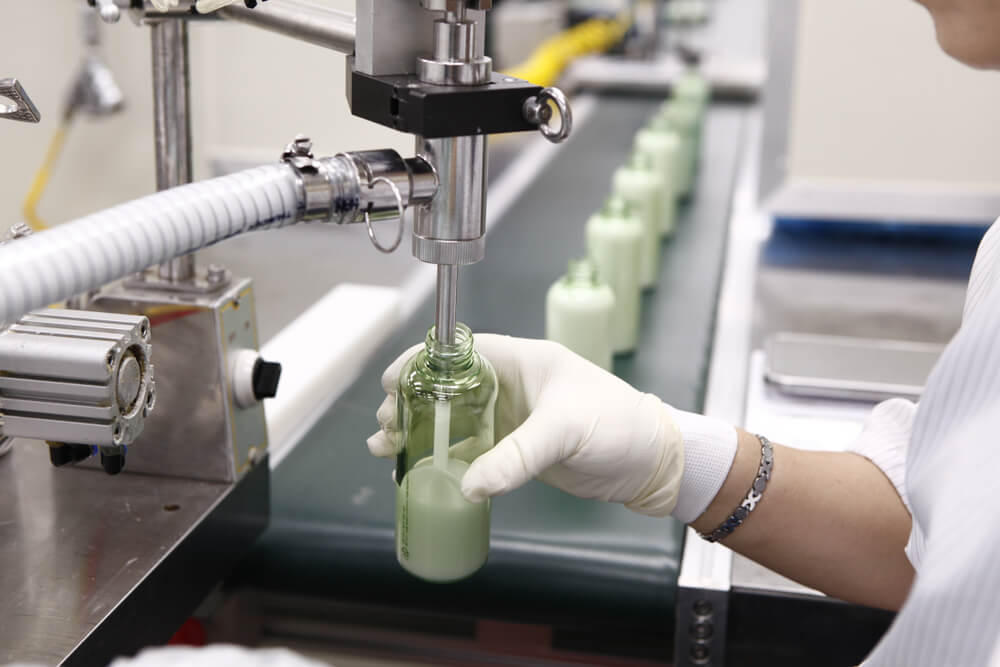Launching a private label product line can be a very clever move for a retailer to take. Get things right and you could see yourself vastly improving your profit margins while also better meeting your customers’ needs.
If you’ve been thinking about adding a private label line to your retail business, read on as FLPL shares some top tips to help ensure that your new venture is a huge success!
1. Higher Quality at a Lower Price
Before you start developing your new product line, it’s important to determine how you want to approach pricing. This will influence all of the decisions that you make in terms of everything from choosing ingredients to creating packaging.
One of the most popular routes would be to offer high-quality products at a price that’s lower than the other brands you currently stock. This will immediately help to differentiate your private label products. Customers will be much more likely to choose them over higher-priced items and, once they see the consistent quality that you’re providing, brand loyalty won’t be far behind.
2. Consider a Premium Line Too
If you don’t want to compete with low prices, another option to take would be to develop a premium private label product line. For this, you’ll need to create products that are truly better than the rest, making no sacrifices in quality in any areas.
The fact that your initial costs will soar makes this a slightly risky strategy. However, it’s one that can pay off in a big way. Although customers may not choose your premium products for their everyday purchases, they’ll no doubt be drawn to these when shopping for gifts or for special occasions.
3. Consider Practicing Distancing to Bridge Credibility Gaps

If you decide to go premium with your private label product line, it’s important to consider your retail brand’s current reputation. Say, for example, you’re known for stocking budget-friendly skincare products. If you suddenly add in a luxury line, your customers are going to doubt its credibility.
One way to get around this is by distancing your retail name from your new product line. Give your new products their own distinct brand image, so that they’re not associated with your retail name in any way. Customers will then see your new products as a completely separate entity and will be much more likely to trust its premium credentials.
4. Prioritize Innovation When Developing Your Product Line
Of course, pricing isn’t the only way to set your products apart from the competition. Many retailers fall into this trap, creating private label goods that are virtually identical to their competition, with the only difference being the price tag.
There’s nothing wrong with taking this strategy but if you’re hoping to establish a long-term customer base for your new product line, innovation is key.
For this, you’ll need to do some in-depth market research. Find out more about your customers’ needs and wants and then identify how you can meet these in a way that other products are failing to do. Be creative with this. Come up with unique solutions to the problems that your customers are having and they’ll soon be clamoring for your products.
5. Take the Opportunity to Expand Your Offerings
As we discussed above, it’s important that the products you produce meet the needs of your customers. However, you should also turn to these products as a way to fill in any gaps in your full product range.
Say, for example, you’re a retail store that sells cosmetic products. You stock plenty of face creams, serums, and face masks, but you don’t have many lip care products on offer. Rather than filling in this gap by stocking lip care products from other brands, consider creating your own. A more diverse offering will also have customers appreciating how you’re now a one-stop-shop for all things cosmetics.
6. Spend Time on Branding

Private label products are sometimes viewed as being generic. This can sometimes cause customers to subconsciously skip over a product, even if it happens to be an innovative item that they genuinely need.
This is why branding is so important. Your new product line needs its own identity, and good branding will give it this. Come up with a compelling brand story that explains why your new products exist. You’ll then be able to leverage this story in your marketing efforts too.
Use branding as a way to draw customers in, intriguing them to the point where they’re desperate to try your products.
7. Perfect Your Packaging Before You Launch
Your private label products only have one chance to make a first impression on customers, so this needs to be a good one. This is why packaging is so important, especially when you first launch your product line.
Your packaging needs to be attractive yet informative. It needs to stand out on the shelf, so take a good look at the packaging that similar products are housed in to identify ways in which you can differentiate yours.
Labeling is also extremely crucial. Depending on what you’re selling, your labels will need to follow industry regulations. Get this wrong and it could be disastrous for your new brand.
Some private label manufacturers offer no additional help when it comes to labeling and packaging. You’ll need to source a separate company to help with this. However, team up with FLPL and you’ll be able to enjoy the full works. We’ll help you to design and manufacture both labeling and packaging so that not only will your products fall in line with any legalities, but they’ll also pull customers in to help you make a sale.
8. Manage Your New Product Line As a Standalone Brand
Often, when retailers launch a new product line, they integrate the running of this line with their existing operations. For example, they use the same marketing strategies and sales teams, which makes sense since they already have all of that in place.
While doing things that way has its benefits, many retailers have experienced greater success by running their new product line as a standalone brand. They hire staff in accordance with this – people who specialize in the products being sold under the new line. The same applies to marketing. If a retailer decides to launch a hair care line, then rather than using their retail marketing specialists to promote these products, they’ll work with a team that has specialized hair care marketing experience.
This can help to give your brand the edge that it needs to succeed in a competitive marketplace.
9. Heavily Market Your New Product Line

Being a retailer puts you at an immediate advantage. You already have access to a huge customer base. Unlike a new business, you won’t be starting from scratch, and this is something that you need to make the most of.
Take in-store marketing, for example. You already have a store that customers visit, so use that to market your new product line. Even if you don’t have a brick-and-mortar store, your online store will more than suffice.
Cross-promotion can be extremely useful too. Say, for example, your new product line features body care products. If you already sell skincare or grooming products, use those product pages/areas in your physical store to promote your new line of body care products.
Many retailers fail to adequately market their new product lines. As a result, those products end up slipping into the background, failing to grab attention because people don’t know to look out for them.
10. Get Your Employees Excited About Your New Products
Chances are that if you’re a retailer that has been in business for a while, you’ll have a few employees. They’ll likely play a significant role in helping to sell your products, so make sure that you get them on board. The more excited they are about your new products, the better they’ll work to sell them.
How can you do this? Start by giving your employees the opportunity to try out your new products before they’re officially available in-store. Give them free samples to take home and, after that, offer an employee-only discount or the products at cost price to grow loyalty.
If your employees genuinely love a product, they’ll be more likely to recommend it to customers, which is exactly what you need if you want to boost sales.
Creating Private Label Products With FLPL
Once you decide to go down the private label route, you’ll need to choose a private label manufacturer to work with. This is an exceptionally important decision that could make or break your new venture.
Ideally, you want to pick a company that has plenty of experience in your chosen niche. At FLPL, we specialize in beauty, grooming, and self care products. Whether you want to create a line of hair styling tools, skincare, or aromatherapy oils, we can help with all of that and more.
What sets us apart from other cosmetic private label manufacturers is the full breadth of services that we offer. Many private label companies will take control of manufacturing but not much else. At FLPL, we can stand by you for every step of your private label journey. From fleshing out your initial ideas and concepts to creating your products and packaging to marketing and promotion, you can lean on our knowledge throughout the entire process.
Once your products have hit the shelves, we can help you with future brand development too. It’s important to ensure that things don’t go stagnant after your product has been on the market for a while. Marketing needs to be constant, and you may also find opportunities to further expand your product line and capitalize on your initial ideas. Again, we can offer assistance with all of this.
Summary
More and more retailers are now launching their own private label product lines, and to great success. It can make a retail business so much more profitable while also boosting its reputation in a big way. Follow the tips that we’ve shared above and you’ll soon be able to experience the same!
Want to know more about the private label manufacturing services offered by FLPL? Click here to get in touch with us today!



